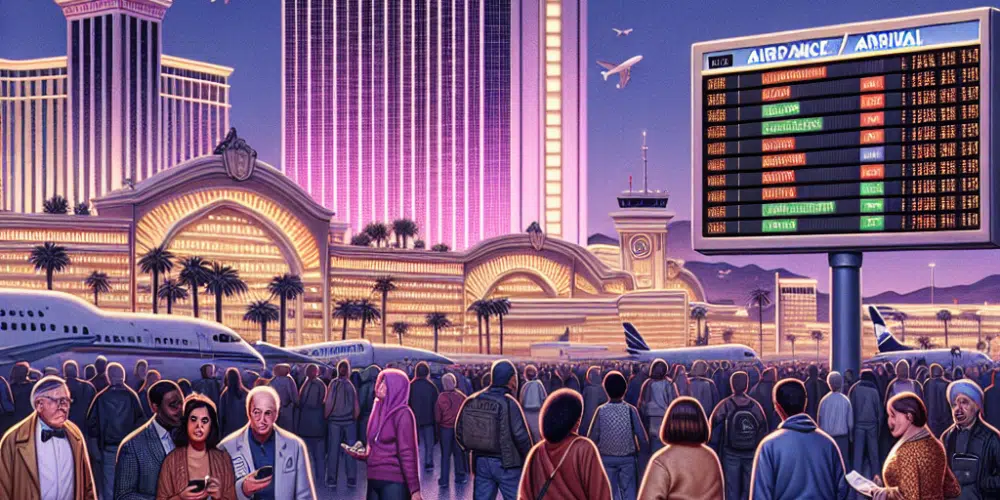On Monday, Harry Reid International Airport in Las Vegas faced significant flight disruptions, with over a quarter of all scheduled flights delayed or canceled. This left thousands of travelers stranded and created uncertainty for tourism-reliant businesses in the city.
The chaos in the skies coincides with the ongoing federal government shutdown, which has severely affected air traffic control operations across the United States. FlightAware reported that over 2,200 flights were disrupted nationwide on Monday, impacting major airports like Chicago O’Hare, Phoenix Sky Harbor, and New York’s main airports. Las Vegas, however, has experienced a particularly severe impact.
The timing of these disruptions is particularly concerning for Las Vegas, as the city gears up for the Formula One Las Vegas Grand Prix, a major event expected to attract tens of thousands of visitors with significant spending potential. The flight cancellations and delays have raised concerns about whether the city can accommodate the expected influx of tourists. Some local economists warn that these disruptions could undercut what was anticipated to be a record-breaking season for travel and tourism.
MGM Resorts has observed a “slight uptick” in cancellations due to the prevailing travel uncertainties, a sentiment echoed by other hotels like ARIA and Caesars Palace. The Las Vegas Convention and Visitors Authority (LVCVA) has stated that it is closely monitoring the situation and has urged Congress to quickly resolve the shutdown impasse.
The potential for an extended government shutdown poses long-term risks for the travel industry. The US Travel Association, along with major hospitality and airline companies such as MGM Resorts, Caesars Entertainment, and The Venetian, recently issued a warning. They highlighted that the shutdown has already inflicted a $4 billion loss on the travel sector and cautioned that continued disruptions could spell disaster, particularly with Thanksgiving on the horizon.
“This is exactly why we have joined other industry leaders in asking Congress to take urgent action and reopen the government,” the LVCVA pointed out in a statement, emphasizing the severe implications for travel if the deadlock isn’t resolved soon.
While the Nevada Resort Association remains optimistic, suggesting that hotel occupancy might not be severely impacted, others are less confident. Casino recruiters and local economists express concerns over potential long-term effects. Stephen Miller, a professor at UNLV, noted that the shutdown could exacerbate existing economic challenges, including inflation and visitor fatigue, potentially stalling economic progress in the region.
For a city like Las Vegas, which thrives on a steady stream of visitors, these flight disruptions represent more than just an inconvenience. They threaten to derail crucial operations, with the ongoing federal shutdown complicating travel plans for the numerous VIPs and corporate sponsors expected for high-profile events like the Grand Prix. This could deprive local businesses of essential revenue streams.
While some stakeholders in Las Vegas downplay the immediate impact, the broader travel and tourism industry remains cautious. They recognize that prolonged disruptions could result in a significant economic downturn. The resilience of Las Vegas’s economy, heavily reliant on tourism, may be tested as the situation unfolds. The importance of a swift resolution to the federal shutdown becomes increasingly apparent, with many hoping for decisive action to restore normalcy and safeguard the upcoming tourism season.

















